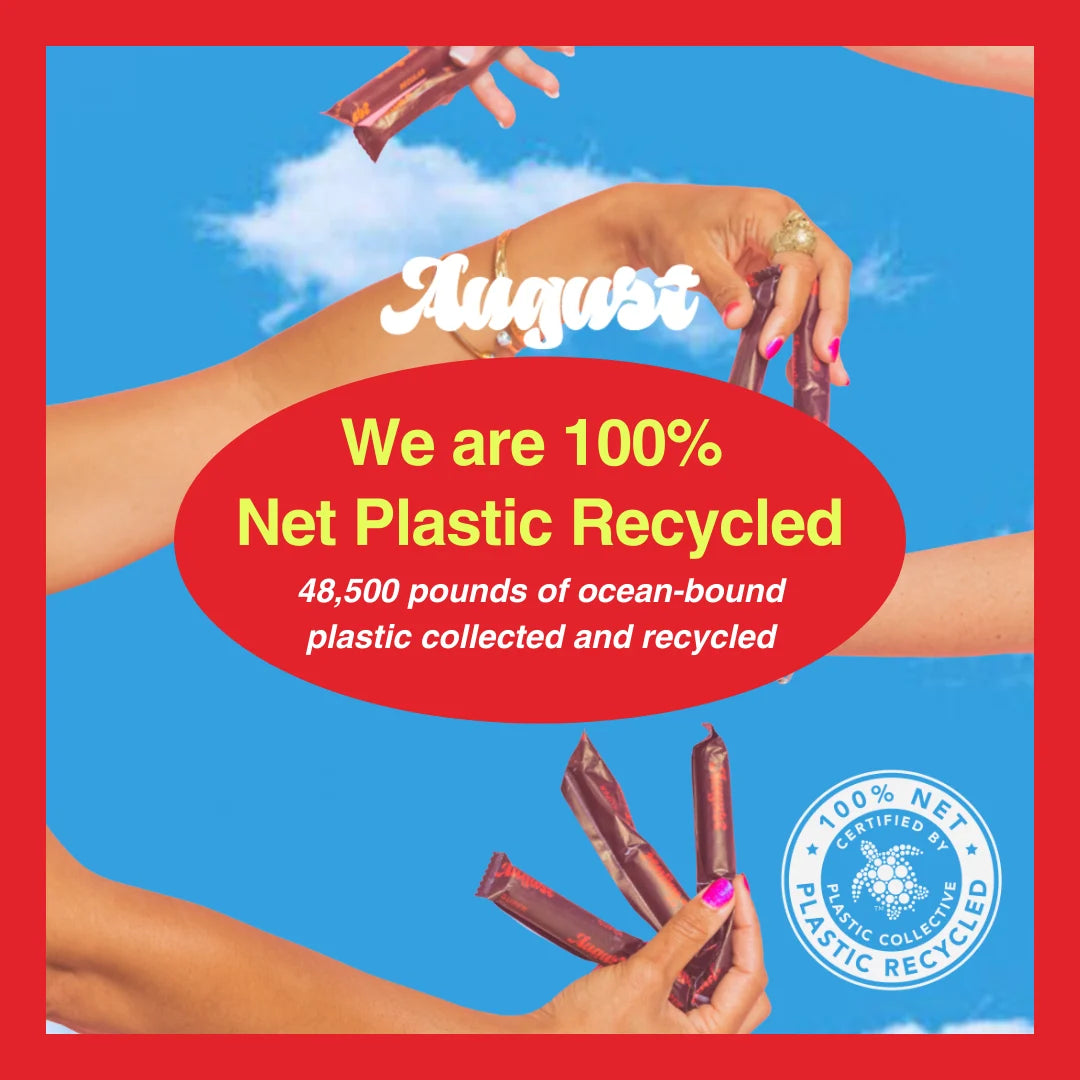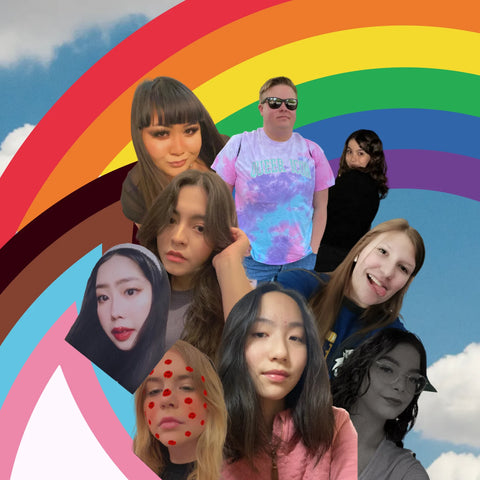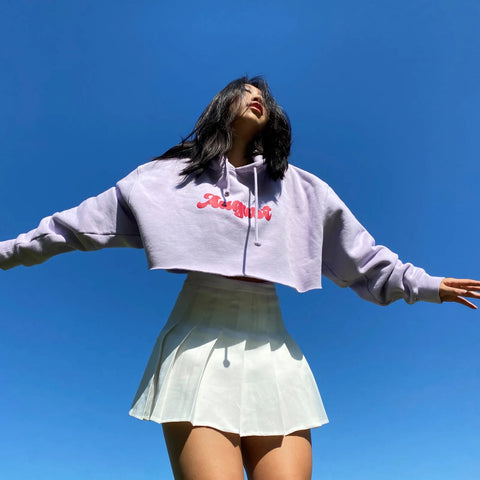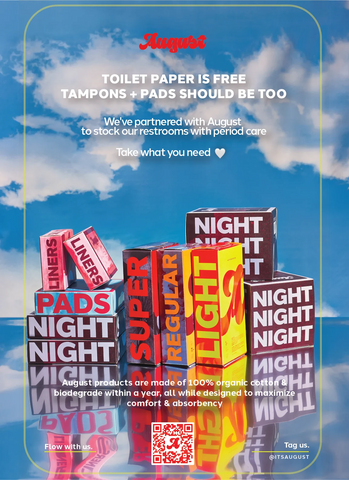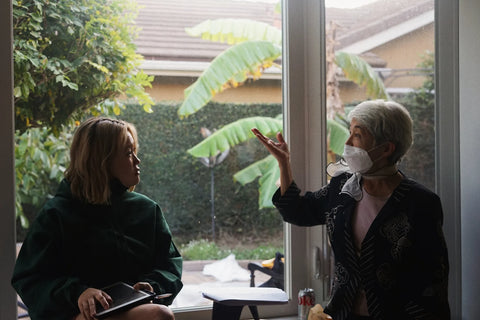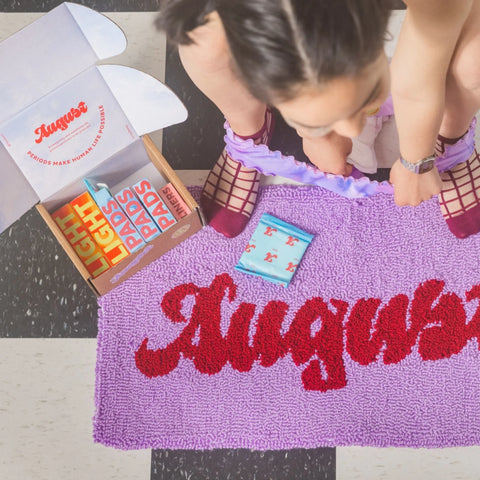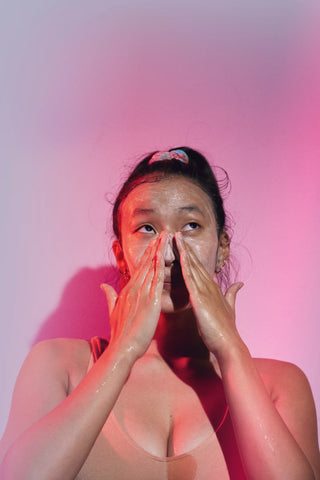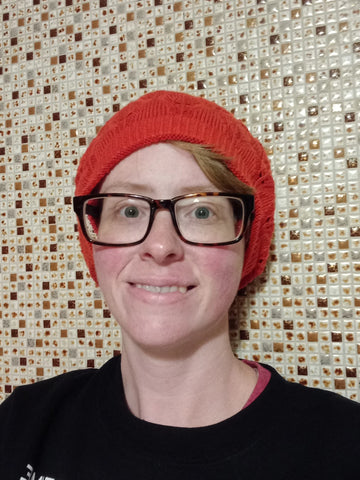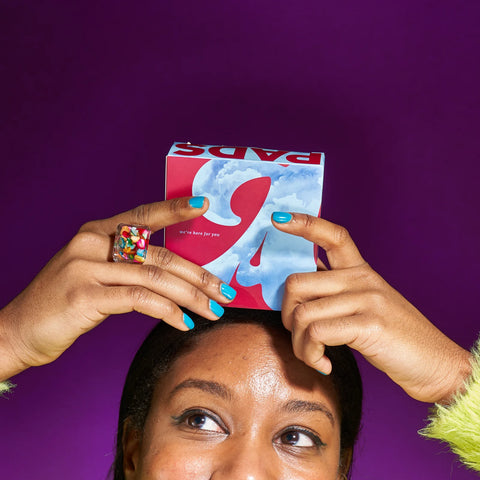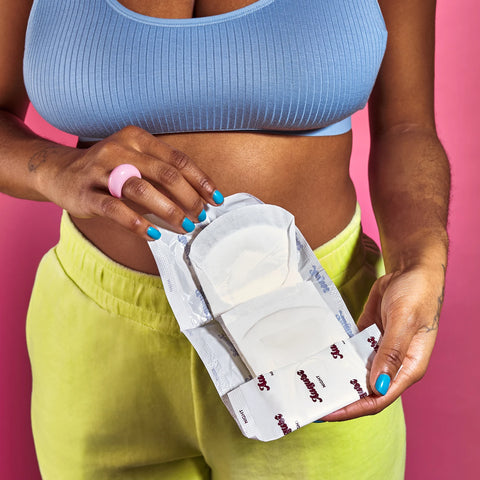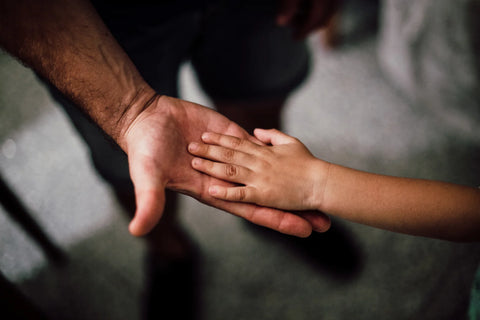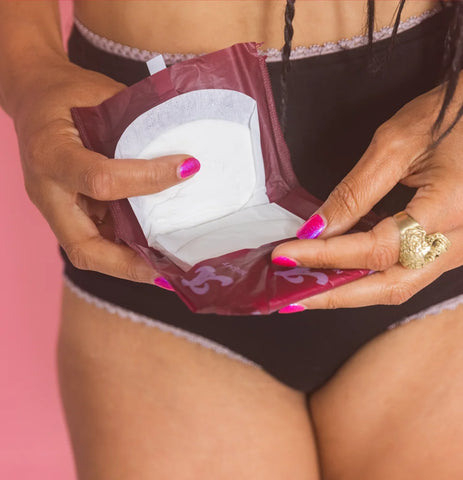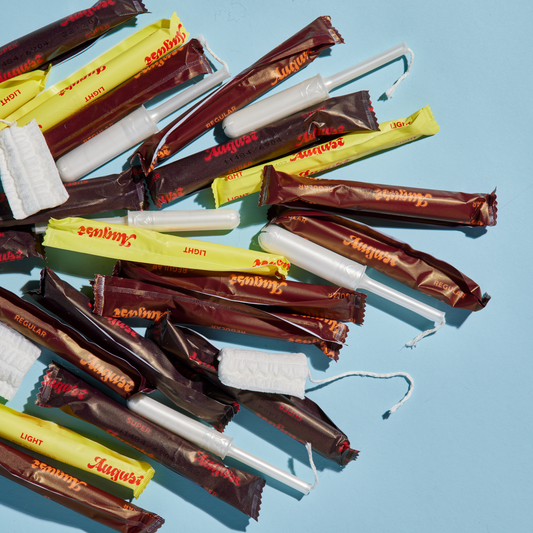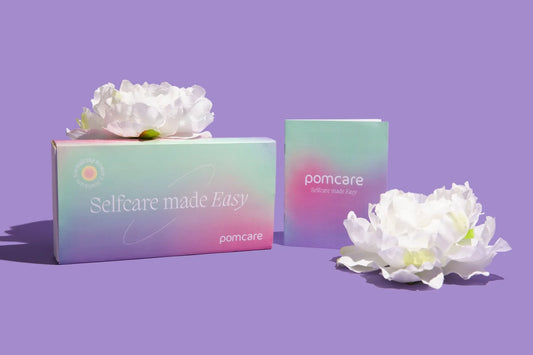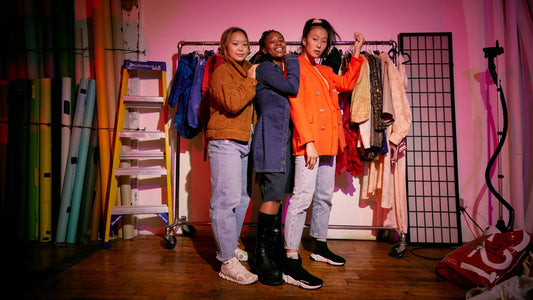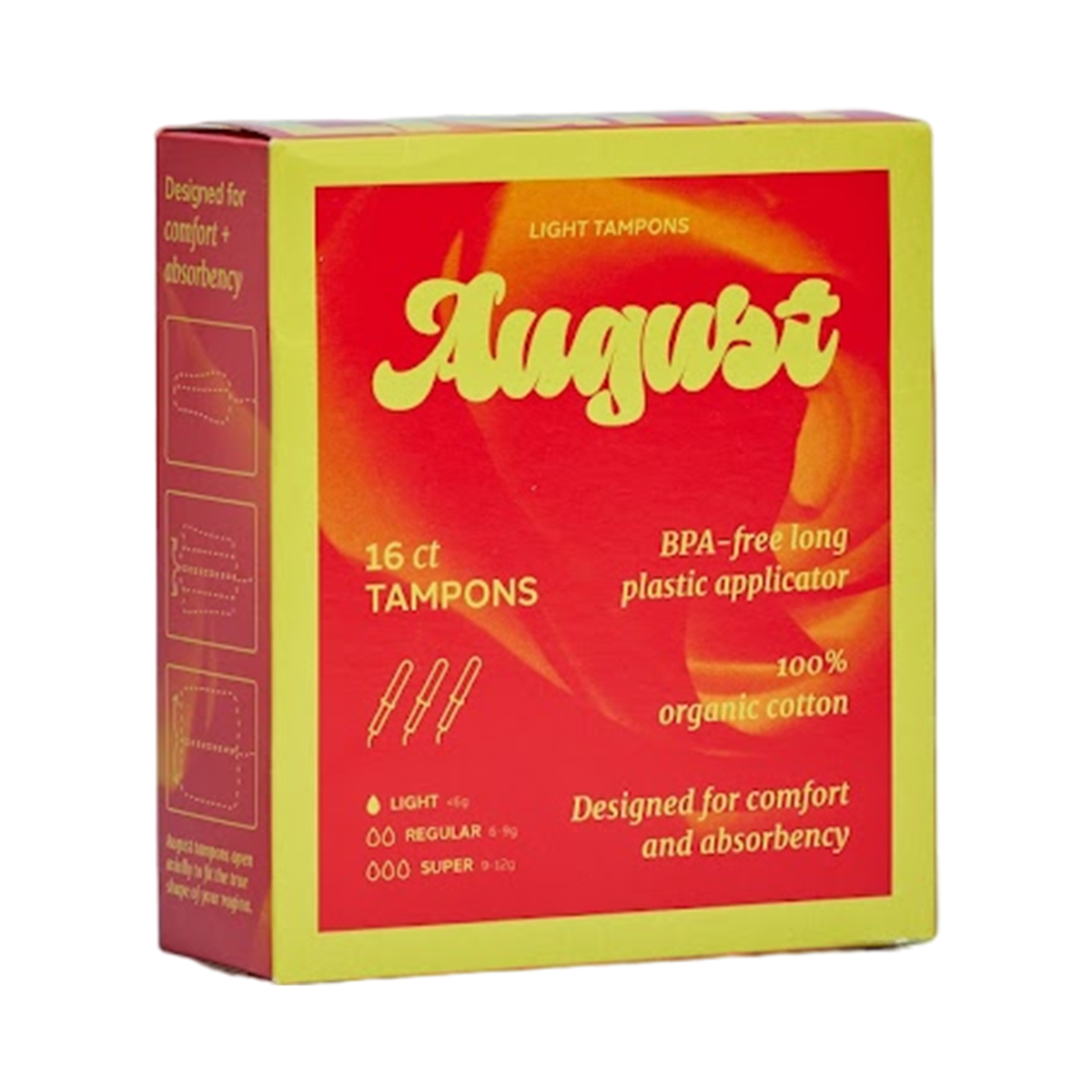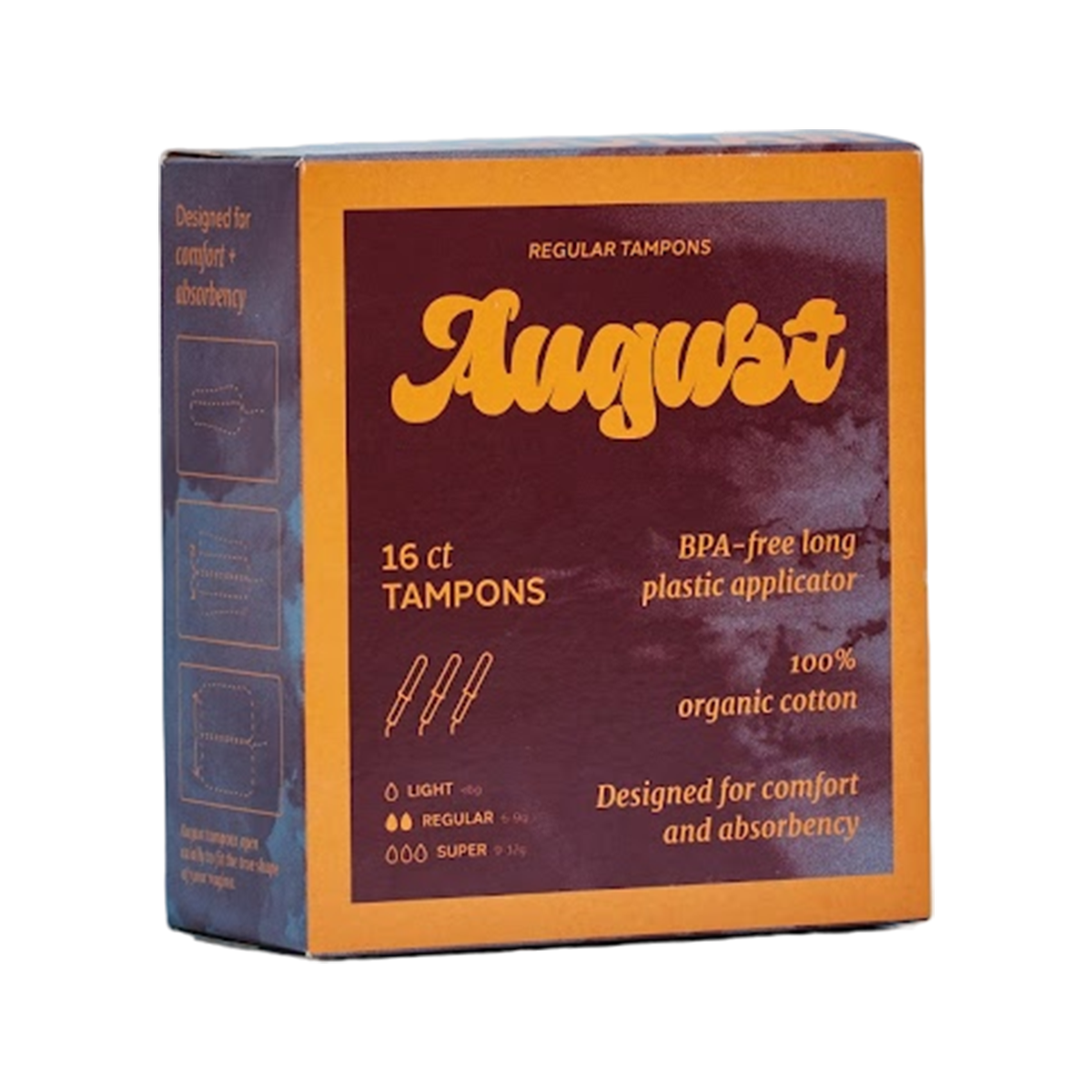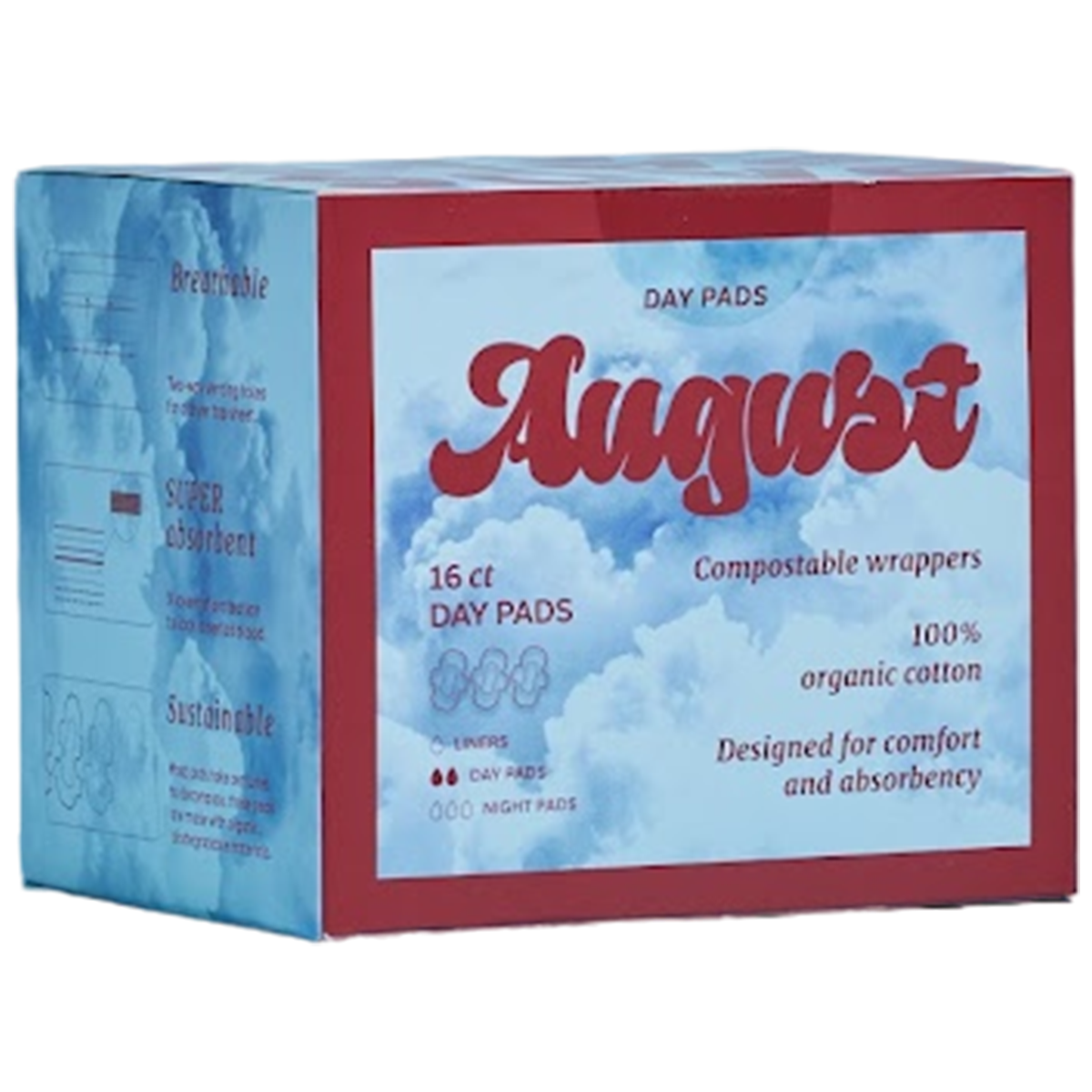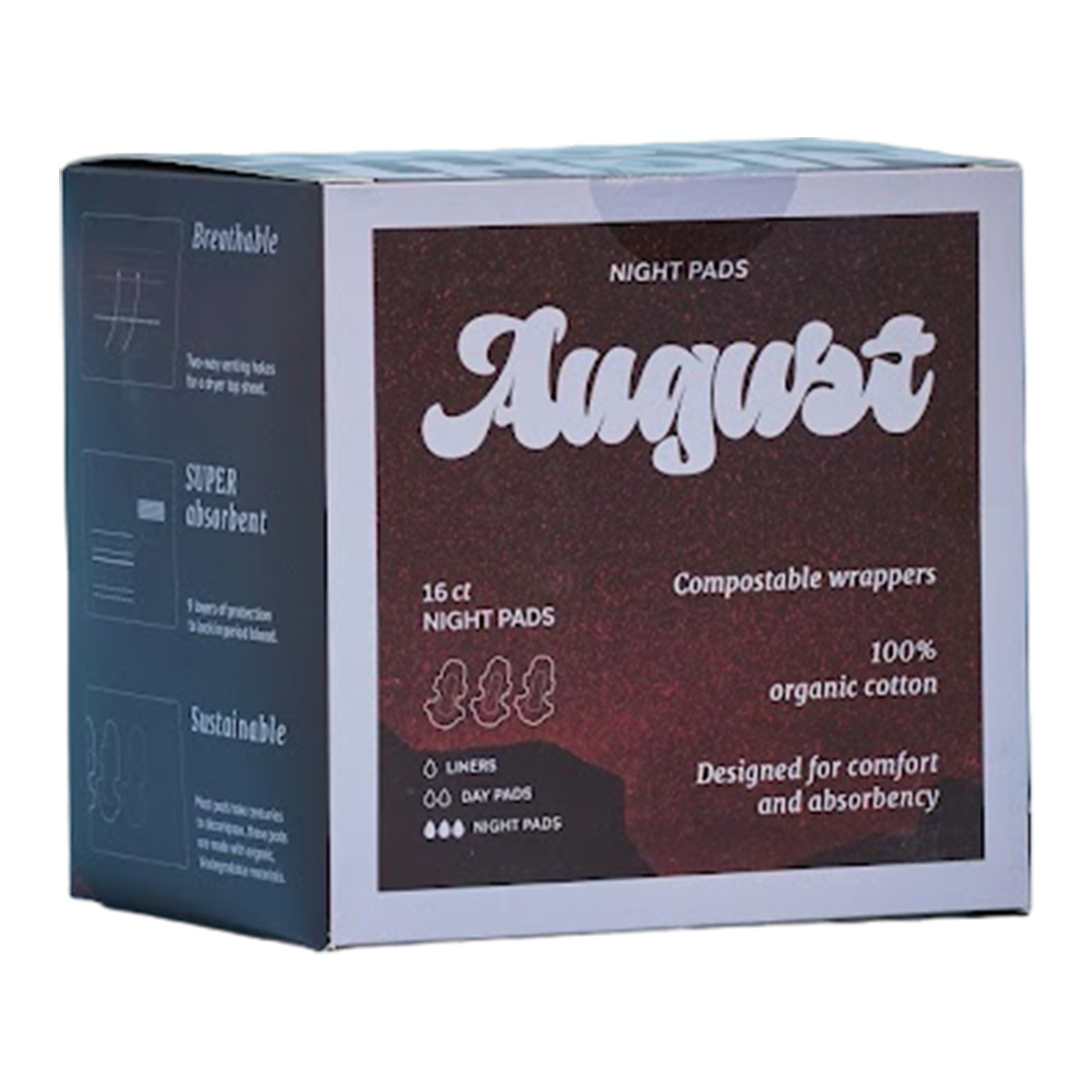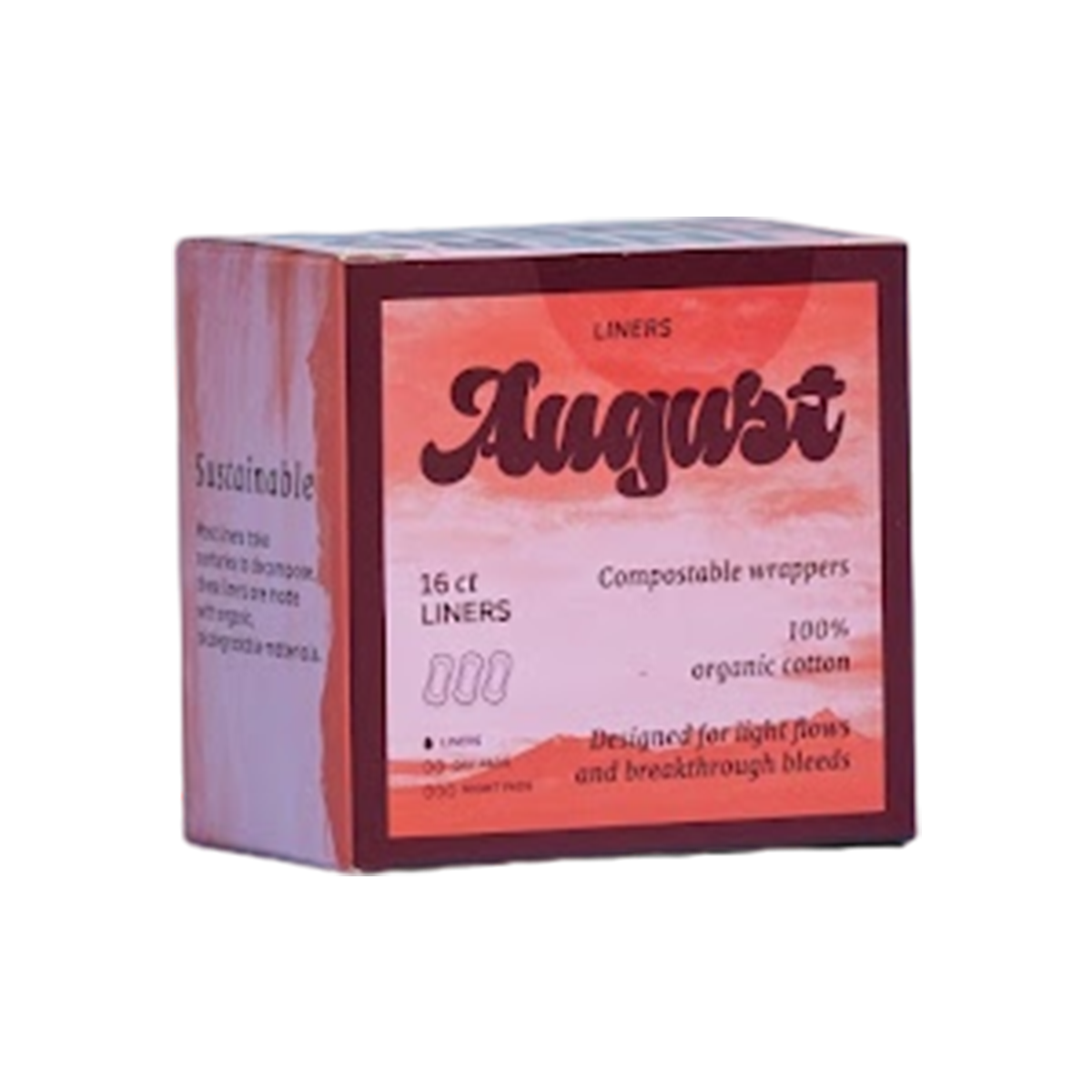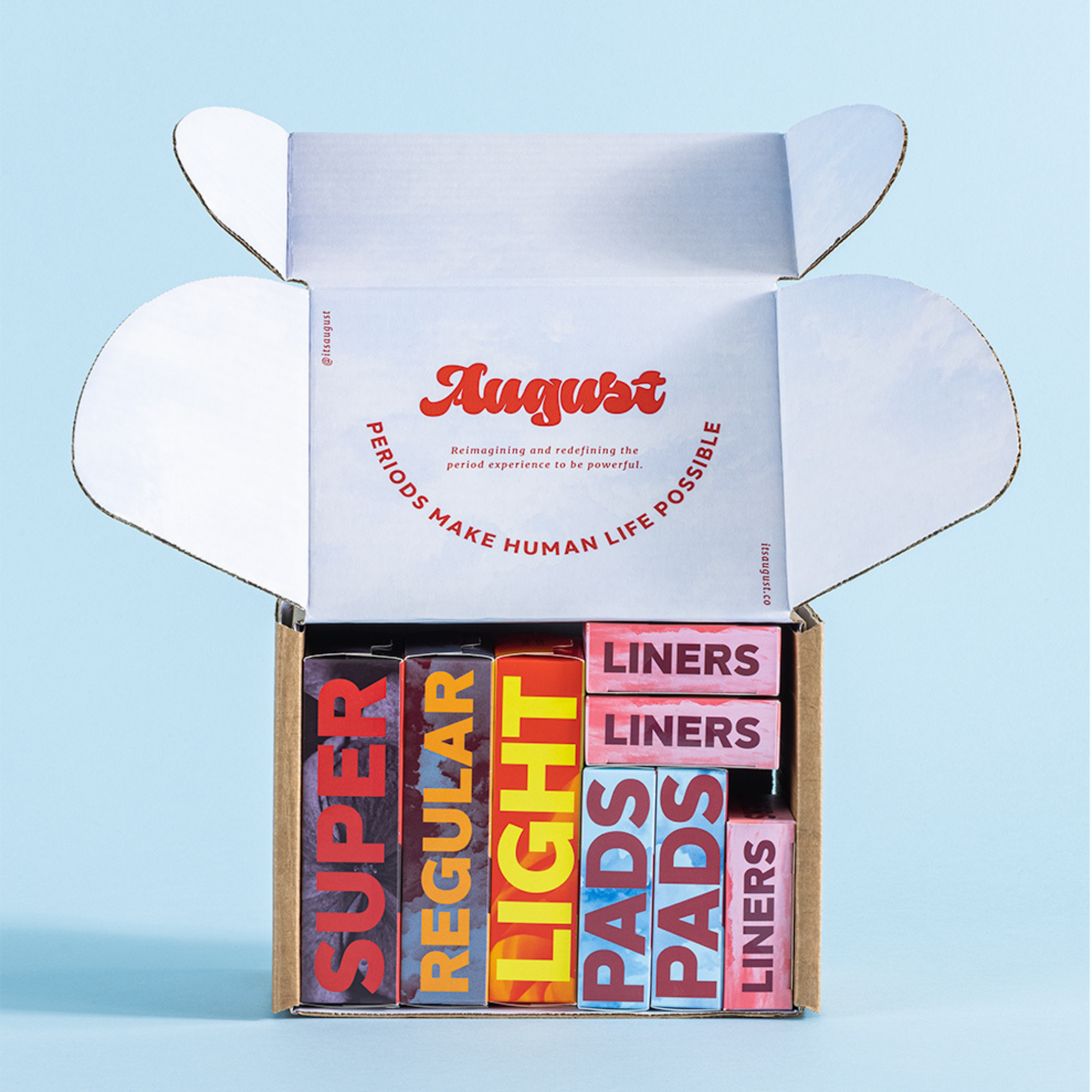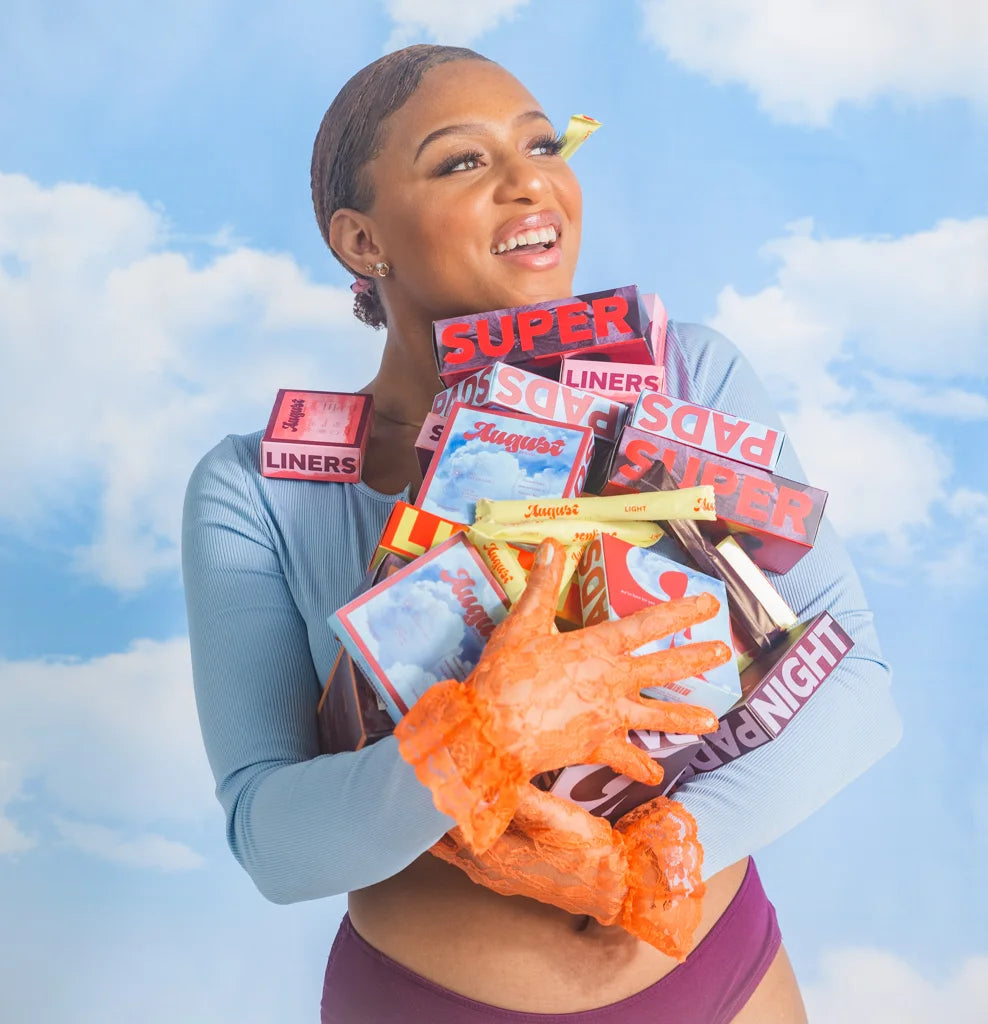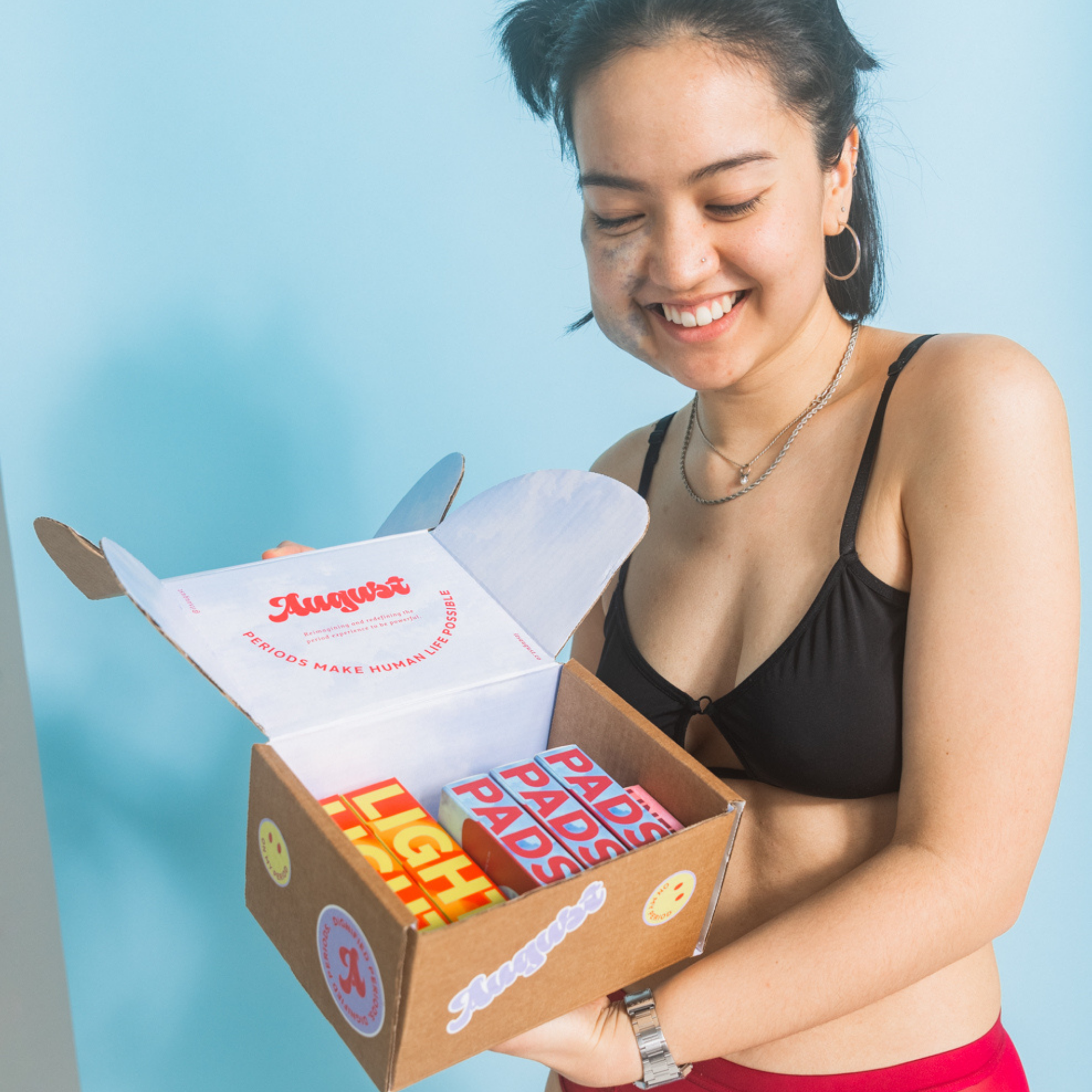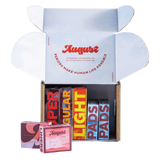At August, sustainability is a core value.
From the beginning, we’ve dedicated ourselves to creating organic, comfy, and inclusive period products with our planet in mind.
When we first began dreaming up August in early 2020, we asked our community what features of period care they felt most comfortable with. Their general requests were for comfort, absorbency, quality, and sustainability – but a specific request was for August to make a plastic applicator tampon.
This trend goes well beyond our community with over 7 billion plastic applicators being used in the U.S. each year. Even though sustainability is one of our core values, we didn’t want to compromise on comfort or ease, so we decided to produce recyclable plastic applicators.
However, we quickly hit a series of roadblocks: recycling restrictions vary by district, and the greater problem that only around 5% of the plastic produced in the U.S. last year was actually recycled. The reason, according to waste management experts, is that plastic is expensive to collect, sort, and clean.
We’re taking action against our plastic use.
In order to take action against our plastic use, we are partnering with Plastic Collective to invest in the proper collection and recycling of 22 metric tons (~48,500 pounds) of ocean-bound plastic.
In partnership with Plastic Collective, as of January 1, 2023, August is certified 100% Net Plastic Recycled.
As part of our strategy to reach our vision of being as sustainable as we can be, we are committing to purchasing plastic credits and setting longer term goals to decrease our plastic footprint and make our plastic usage more circular.
Our Current Plastic Use
We currently use plastic in 3 different categories:
- Product:
- August BPI-free tampon applicators are made of polyethylene.
- August pads use SAP to lock in liquid and bioplastics PLA and PBAT in the back sheet.
- August Cramp Clamps are made of cellulose acetate.
- August stickers are made from PVC.
- Primary packaging:
- August pad wrappers are made of BPI-certified compostable PVA and our tampon wrappers are made of polyethylene.
- The sticker on the pad wrapper is made of polypropylene.
- August pad boxes are sealed for safety with a polypropylene sticker.
- Secondary packaging:
- August merchandise is shipped in polyethylene bags.
What does 100% Net Plastic Recycled mean?
Achieving 100% Net Plastic Recycled means that the equivalent of the total weight of plastic we put out is collected and recycled through a project we fund. This means that for every purchase you make, we invest in credits that equate to the collection and recycling of the same amount of ocean-bound plastic.
How did August period care get certified?
It all started with a lengthy process of projecting our 2023 plastic footprint and determining the amount of plastic credits we would need to compensate for our plastic waste.
During this step, we looked at our product and packaging data to help estimate the total downstream plastic we might produce. Downstream plastics are plastics that leave our company’s operations through our sold products + packaging and does not consider microplastics or plastics that may arise in other areas of company operations such as work offices. Following the Guidelines for Corporate Plastic Stewardship, allowed us to measure our plastic footprint and estimate how much plastic might end up in the environment or not get recycled.
To compensate for our projected plastic footprint this year of 22 tons, we invested in the equivalent quantity of waste collection credits and waste recycling credits, which have funded the removal and recycling of 22 tons of ocean-bound plastic.
Plastic credits are an essential part of being certified, but how do they work?
Waste collection credits and waste recycling credits (aka types of Plastic Credits) work similarly to carbon credits, which you might have heard of in the context of reducing greenhouse gas emissions. Except in this case, plastic credits help us address plastic waste!
The funds from the credit transactions are used to expand recycling activities, build recycling infrastructure, and support other initiatives that contribute to reducing plastic waste.
Through our partnership with Plastic Collective, we chose an initiative that has collected and recycled an equivalent quantity of plastic to that contained in the products we sell and their packaging in exchange for funding we provided them.
The initiative we have chosen to work with is called SEArcular which is implemented by Greencore.

SEArcular by Greencore is a community-driven plastic waste collection and recycling project situated in Gresik, Surabaya, Indonesia that we will be working with for at least the next 3 years. The project launched in 2018 and aims to combat plastic pollution primarily in coastal areas. In addition, Greencore proudly holds the distinction of being the first certified__ OBP (ocean-bound plastic)__ recycler in Indonesia. As defined by Zero Plastic Oceans, “OBP is an “Abandoned Plastic Waste” (microplastics, mezzo-plastics and macro-plastics), located within 50km from shores where waste management is inexistent or inefficient.
Since August is made for and by our community, we are excited that SEArcular’s work is also centered around empowering local communities. They provide locals with employment opportunities, training, and incentivized pricing for the plastic waste they gather. The project collects LDPE, HDPE, PP, PET, PVC, PA, PC, and PS and specifically focuses on managing the proper disposal of the most challenging plastic types to recycle. It was important for us to find an initiative that is able to recycle plastic types we use, since our products and packaging use PE, PP, and PVC, in addition to SAP, PLA, and PBAT.
SEArcular’s activities promote the following initiatives:

-
Circular Economy: SEArcular’s activities promote a circular economy model, where materials are appropriately managed, including recycled where possible.
-
Community Engagement: The project emphasizes a community-based approach, actively involving and supporting local communities in plastic waste collection and recycling efforts.
-
Tackling Leakage: SEArcular recognizes the high rates of plastic leakage into the environment in Indonesia, both from collected and uncollected waste, and is dedicated to addressing this issue through effective waste management strategies (Watch this for more info).
-
Challenging Plastics: SEArcular focuses on providing an appropriate end of life for the more difficult to recycle plastic types.
SEArcular’s focus on these activities helps combat Indonesia's status as the largest contributor to marine plastic pollution and work towards a cleaner, more sustainable future. The SEArcular initiative aims to collect an average of 7,579 tons of plastic waste annually over the next 8 years. This significant quantity of plastic would otherwise remain in the environment, be disposed of through open burning, or end up in landfills.
But our sustainability efforts do not end here. There is more work to be done!
August’s longer term goal is to reduce our overall plastic footprint and to make our plastic-use more circular. Plastic credits will be used to compensate for our footprint for the time being and we will be reassessing the credits needed every year.
In order to continue working towards our goal, we will be doing annual reporting on our plastic usage and impact. Along with reporting, we will continue to explore strategies to reduce our plastic waste. Current areas we are diving into:
- Reducing the amount of plastic used in our current product selection
- Exploring new products that would be plastic-free
- Finding alternatives for our merch packaging
We acknowledge that sustainability will always be a work in progress. August is excited to stay up to date on innovation in the plastic space as we continue working towards reducing our plastic use and making our plastic more circular.
More Details
To learn more about our certification process, head over to Plastic Collective. Email us at care@itsaugust.co if you have any questions!
